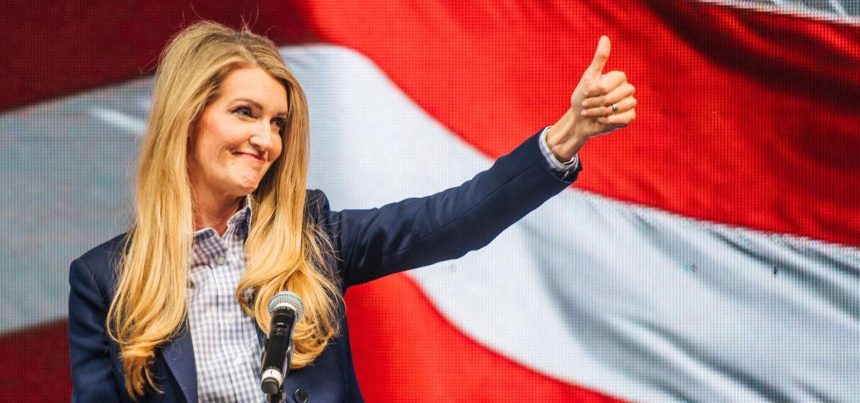Paragraph 1: Introduction and Loeffler’s Appointment
President-elect Donald Trump has selected Kelly Loeffler, a former Georgia senator and significant contributor to his 2024 campaign, to lead the Small Business Administration (SBA). Loeffler’s prior experience includes a brief stint in the U.S. Senate following an appointment by Governor Brian Kemp in 2020, a role she held until her defeat in a special election by Raphael Warnock in 2021. Beyond her political career, Loeffler possesses a strong business background, having served as the CEO of Bakkt, a cryptocurrency trading platform, and co-owner of the WNBA’s Atlanta Dream. Her educational credentials include a marketing degree from the University of Illinois and an MBA from DePaul University. Trump emphasized Loeffler’s business acumen and Washington experience as key assets in her new role, highlighting her mandate to streamline processes and foster small business growth.
Paragraph 2: The SBA’s Mission and Performance
The SBA, established in 1953, serves as a vital resource for America’s approximately 33 million small businesses, offering support for startups, growth initiatives, and resilience-building. The agency aims to bolster competition through entrepreneurship and plays a crucial role in strengthening the U.S. economy. In FY 2024, the SBA facilitated a record number of financings since 2008, exceeding 103,000 for small businesses and 18,000 for disaster recovery. The agency’s capital impact also reached $56 billion, a significant increase from the previous fiscal year. The SBA’s core functions encompass providing access to capital through various loan programs, supporting government contracting for small businesses, offering entrepreneurial development programs, and acting as a national advocate for small business interests. Furthermore, the SBA plays a critical role in disaster relief, exemplified by its administration of the Paycheck Protection Program (PPP) during the COVID-19 pandemic.
Paragraph 3: Challenges and Criticisms Faced by the SBA
Despite its vital role, the SBA has faced scrutiny and criticism, particularly concerning the management of its lending programs. Programs like EIDL and PPP have been susceptible to fraud, leading to accusations of mismanagement and wasted taxpayer dollars. The agency has also been criticized for "mission creep," expanding into areas beyond its core mandate. This includes initiatives related to diversity, equity, and inclusion, as well as efforts to become a designated voter agency. Critics argue that these initiatives lack proper authorization and potentially duplicate efforts by private, state, and local entities. Furthermore, the SBA’s push for direct lending has raised concerns about efficiency and the burden on taxpayers, with many arguing that the private sector is better equipped to handle lending operations.
Paragraph 4: Technological and Regulatory Hurdles for Loeffler
Kelly Loeffler enters her role as SBA Administrator facing several critical challenges. One key area is the need to modernize the agency’s technology. The SBA’s reliance on outdated systems, particularly in loan processing, creates inefficiencies and burdens small businesses with excessive paperwork. Partnering with fintech companies could offer a solution, leveraging their expertise in digital lending platforms to streamline processes and expand access to capital for underserved businesses. AI-powered decision-making could further enhance efficiency and mitigate fraud. Another challenge lies in addressing excessive regulations that hinder small business growth. Given the Trump administration’s emphasis on deregulation, Loeffler is likely to advocate for policies that reduce regulatory burdens and stimulate economic activity.
Paragraph 5: Accountability and Focus as Key Priorities
Loeffler will also need to address issues of accountability and mission creep within the SBA. The agency’s expansive mandate has led to a lack of focus and difficulty in measuring program effectiveness. Loeffler’s priority should be to streamline the SBA’s operations, concentrating on core, congressionally authorized programs. This includes a thorough review of spending and the implementation of performance metrics to ensure accountability and safeguard taxpayer dollars. Addressing past instances of fraud and waste, particularly within programs like PPP and EIDL, is also crucial. Holding individuals accountable for falsified loan applications, either through repayment or legal action, is necessary to restore public trust.
Paragraph 6: A Roadmap for SBA Reform under Loeffler
Several key actions can guide Loeffler’s efforts to reform and modernize the SBA. Protecting small businesses from overregulation is paramount, fostering an environment conducive to growth and risk-taking. Focusing on core programs and enforcing accountability for agency performance will enhance efficiency and effectiveness. Addressing fraud and waste, particularly in lending programs, is essential to restoring public trust and preventing future abuses. Ending direct lending and encouraging private sector involvement can streamline lending processes and benefit a wider range of small businesses. Upgrading technology is crucial for improving efficiency, outreach, and access to capital. Finally, expanding the SBA’s outreach to underserved communities and supporting key industries like domestic manufacturing will contribute to broader economic growth and job creation. By implementing these reforms, Loeffler can transform the SBA into a more agile and effective agency, truly serving as the "Voice of Small Business" and driving economic prosperity.



